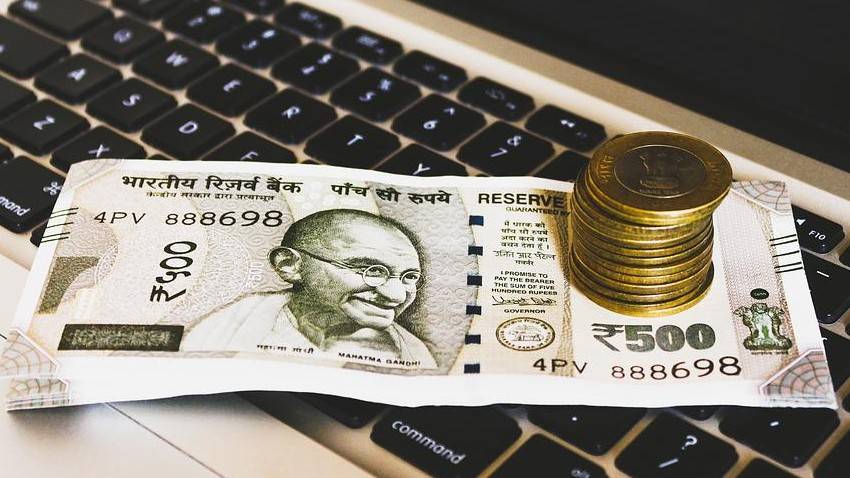How Much Tax is Deducted on Fixed Deposits?

New Delhi : Do you have a fixed deposit account? If you do, you would know a lot about fixed deposits, and if you don't, it's hard never to understand how it works and the several other factors that are associated with it. One of the most important factors is taxes. Have you been wondering how much tax you would be deducted for tax with your FD? Let's talk about it over here.
But, before that, let's understand a fixed deposit.
How Does a Fixed Deposit Work?
A fixed deposit is when you can invest a lump sum amount in an account for a fixed period of time. At the same time, the money is locked in the account for a fixed period of time.
During this fixed tenure, the FD will be earning a rate of interest on the lump sum amount.
Now, the interest rates would vary from one institution to another, but the terms and conditions of the fixed deposit would change.
A fixed deposit cannot be liquidated easily; if you want to liquidate it before the determined period, you will be given a certain amount of penalty to draw the money, and it can only be done in certain emergencies.
But, before you invest in a fixed deposit, there are some things you need to know.
Things to Know Before You Start Investing in a Fixed Deposit
Here are some factors that you need to keep in your mind before you invest in a fixed deposit:
● You should not need the money anytime soon; this is because you will lose the interest that you were about to earn, and you will also be paying the penalty.
● You need to know what are the best interest rates that will be offered to you, and don't just settle for the first option you find.
● You will also have to know the tenure that gives you the best interest rate; for instance, if you choose Saraswat Bank, you will have to look for the best interest rates for fixed deposits in Saraswat bank for two years, three years, and much more.
How is the Income as Interest from your FD Taxed?
The interest you earn on a savings account is entirely taxed. Interest income is included in your overall tax liability. You should also be aware that interest earned on a fixed deposit is essentially combined with your annual income. Your tax bracket is decided by your entire income.
As interest generated on an FD is considered "income from other sources," it is subject to TDS (Tax Deducted at Source). TDS is deducted from your interest income when it is credited to your account by your bank. Let's have a look at some pointers about FD taxation:
● If your annual income is less than Rs 2.5 lakhs, the bank does not levy tax on Fixed Deposits. Some lenders, however, may require you to submit Form 15G or 15H in order to claim the deductions.
● If you wish to avoid additional TDS, make sure you send Form 15G and 15H to the bank at the start of the financial year.
● TDS is not payable on the interest income from all FDs if it is less than Rs 40,000 in a year.
● If your interest income exceeds Rs 40,000, however, TDS would be deducted at a rate of 10%. Furthermore, if you do not have a PAN card, the bank may deduct 20% TDS.
When do you Need to Pay these Taxes?
If you have a tax due as a result of including interest income in your total income, you must pay it by March 31st of the following year. This is how you pay any taxes that are owed to you.
However, you must pay Advance Tax if the tax payable after including your interest income in your total income is higher than Rs.10,000. As a result, the requirements for quarterly advance tax payments in installments must be compiled.
For Senior Citizens: Senior adults who get interest income from FDs, savings accounts, and recurring deposits can deduct up to Rs 50,000 in income tax each year. This is due to a change in the Finance Act of 2018.
Can you Apply for a Waiver on the TDS of an FD?
If your total income is less than INR 2.5 lakh per year, you can apply for a TDS waiver by filing Form 15G/15H at the start of the year. Even when you are unable to submit these papers, you may still be eligible for a TDS refund when filing your year-end tax returns.
There are a few other methods to save on FD taxes. One option is to open a post office FD, which does not require any TDS deduction. You can split the money and place it into fixed deposits in your spouse's or other family members' names. This is done in order to keep interest income below the INR 10,000 mark.
You should also be aware that if the bank's TDS on FD is greater than your entire income tax burden, you can request a refund while completing your ITR. TDS on FD interest income is thus deducted from your overall tax burden under the Income Tax Act.
Conclusion
Well, now it is clear that you will have to pay TDS on your fixed deposit interest income, and you will also have the chance to get a waiver on it, but for that, you need to make sure that you have submitted the right forms.








